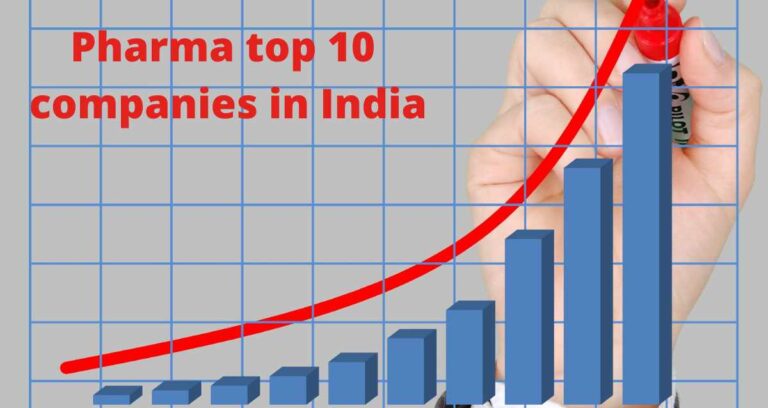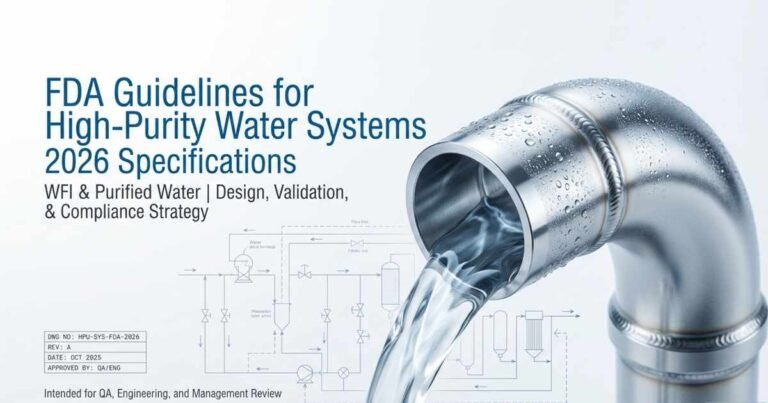Setting up a pharmaceutical manufacturing plant is a strategic investment that demands precision, compliance, and the right pharma machinery list. The equipment you choose directly impacts product quality, regulatory approvals (like WHO-GMP or USFDA), and operational efficiency. This guide simplifies your journey by listing every machine needed for tablet, capsule, and liquid oral production, along with utility systems, trusted vendors, and buying tips. In this post, we are focusing on manufacturing and utility machines, not including the quality control machines.
Table of Contents
Who Needs This Guide?
- Pharma startups planning their first plant.
- Plant buyers upgrading existing facilities.
- Technical heads comparing machinery specs.
Sections wise summary for Pharma Machinery List
- Tablet section: Granulation, compression, coating, and packing machines.
- Capsule section: Filling, polishing, and blister packing.
- Liquid section: Mixing tanks, filtration, filling, and sealing.
- Utilities: HVAC, boilers, DG sets, and Water systems, etc.
- Vendor list, price ranges, and expert tips.

Also Read: Pharma Unit for Sale in Baddi, Himachal Pradesh
Pharma Machinery List Requirement for Tablet Section
a. Granulation Equipment
Granulation converts powders into granules for uniform tablet compression. It is the major sub-section of the tablet section. The major manufacturing process of tablets takes place in this area.
| Machine Name | Purpose | Price Range (INR) | Vendors (Website Links) |
|---|---|---|---|
| Rapid Mixer Granulator (RMG) | Mixes & granulates powders | 20-30 lakh | Adinath, |
| Fluid Bed Dryer (FBD) | Dries granules using hot air | 15-20 lakh | Gansons |
| Multi Mill | Reduces particle size | 10-15 lakh | Bombay Pharma |
b. Compression Equipment
Tablet presses shape granules into tablets.
| Machine Name | Purpose | Price Range (INR) | Vendors |
|---|---|---|---|
| Rotary Tablet Compression | High-speed tablet compression | 12 lakh–15 lakh | Cadmach, |
| De-dusting Machine | Removes excess powder from tablets | 6-8 lakh | Shree Bhagwati |
| Tablet Inspection System | Checks for defects (chips, cracks) | 3-7lakh | Accura PharmaQuip |
c. Coating & Packing Equipment
The coating enhances the tablet’s appearance and stability.
| Machine Name | Purpose | Price Range (INR) | Vendors |
|---|---|---|---|
| Auto Coating Pan | Applies sugar/polymer coating | 35-50 lakh | Solace Engineering, |
| Strip Packing Machine | Packs tablets in aluminum strips | 12-15 lakh | Gansons |
Machinery Requirement for Capsule Manufacturing Section
| Machine Name | Purpose | Price Range (INR) | Vendors |
|---|---|---|---|
| Automatic Capsule Filler | Fills empty capsules with powder | 25 lakh–1.5 crore | Pam, |
| Capsule Polisher | Removes dust from filled capsules | 3–10 lakh | Shri Bhagwati |
| Metal Detector | Detects metallic impurities | 8–20 lakh | Thermo Fisher |
Machinery Requirement for Liquid Oral Manufacturing Section
| Machine Name | Purpose | Price Range (INR) | Vendors |
|---|---|---|---|
| Mixing Tank | Blends liquid ingredients | 10–30 lakh | Fluid Mixing Technologies |
| Bottle Filling Machine | Fills syrup into bottles | 15–40 lakh | Lodha Technology |
| Cap Sealing Machine | Seals bottles with aluminum caps | 5–12 lakh | Apex Engineering |
Utility Equipment Common to All Sections
| Machine Name | Purpose | Price Range (INR) | Vendors |
|---|---|---|---|
| HVAC System | Controls temperature & humidity | 50–70 lakh | Blue Star |
| Water Treatment Plant | Generates purified water (RO/Softener) | 25-30 lakh | Ion Exchange |
| DG Set | Backup power supply | 10-12 lakh | Cummins |
Suggested Vendors & Manufacturers of Pharma Machinery in India
| Vendor | Specialization | Website |
|---|---|---|
| ACG Worldwide | Tablet presses, capsule fillers | Link |
| Cadmach | Granulation & Compression Machine | Link |
| GEA Grou p | Mixing & drying systems | Link |
Factors to Consider Before Buying Pharma Machinery
- Budget: Balance upfront cost with long-term ROI.
- Capacity: Choose those machines that meet your production capacity requirements.
- Compliance: Ensure the machines you are going to purchase meet WHO-GMP/USFDA norms.
- After-Sales Support: Check the track record of vendor whether they support after sale and spare parts of those machines are easily available in nearby.
- Energy Efficiency: Reduce operational costs with eco-friendly models.
Conclusion
It is not an easy task to select the right machinery for your upcoming pharma manufacturing facility for tablet, capsule, and liquid oral sections. You have to start with your priorities, the capacity of machines, accessibility, and delivery time.
It is advisable to do proper homework before placing the order in any machinery manufacturing company. Visit personally at the facilities of machines manufacturers. Take a trial and negotiate for maximum discount. Prioritize on the basis of machine functions and compliance with regulatory bodies like USFDA and MAHRA.
Selecting the right machinery is critical for a pharma plant’s success. Start with high-priority equipment (e.g., tablet press, capsule filler), and gradually invest in utilities.
FAQs
What is the minimum machinery investment needed to start a small-scale pharma manufacturing unit?
The minimum investment in machinery can range between ₹1.20 -1.80 crore for a semi-automatic setup focusing on 1–3 sections (e.g., Tablet +Capsule + Liquid). The cost varies depending on automation, vendor brand, and production capacity. For budget-conscious setups, refurbished machinery can also be considered, though it demands proper inspection.
Which Pharma Manufacturing Section (Tablet/Capsule/Liquid) Requires the Highest Initial Machinery Investment?
The tablet manufacturing section typically demands the highest upfront investment due to the need for multi-step machinery like RMG, FBD, tablet compression, and coating systems. Capsule filling machines (automatic fillers) can also be costly, but liquid oral sections often have lower initial costs unless high-speed filling/packaging lines are added. Therefore, capsule or liquid sections are low cost option for startups.
How Do I Verify If a Pharma Machinery Vendor Complies with WHO-GMP/USFDA Standards?
1. Ask for third-party certifications (e.g., CE Marking, ISO 13485).
2. Check if the vendor has supplied machinery to regulated markets (US, EU, Japan).
3. Request validation documents (DQ, IQ, OQ protocols) for the equipment.
Can I use the same granulation equipment for both tablets and capsules?
Yes, most granulation equipment like Rapid Mixer Granulators (RMGs), Fluid Bed Dryers (FBDs), and Multi Mills are commonly used for both tablet and capsule production, as the granulation process is similar. However, make sure the machine throughput aligns with both dosage form demands. The regulatory compliance of clean room bifurcation is a concern for using the same machines for both sections.
How much space is typically required for setting up a tablet, capsule, and liquid section together?
A basic layout combining these three sections may require 12,000 to 15,000 sq. ft., including production, QC, warehouse, and administrative areas. The actual requirement depends on your batch size, production capacity, layout design, and regulatory standards (like Schedule M or WHO-GMP compliance).
Is it advisable to buy second-hand pharma machinery for a new unit?
Yes, if inspected properly. Second-hand machinery can save up to 40–60% of costs. However, ensure:
1. Machinery comes with documentation (DQ/IQ/OQ)
2. The vendor provides technical support or spares
3. Machines are not more than 5–7 years old
4. You test them before purchasing or hiring an inspection consultant.
Are Indian-manufactured pharma machines accepted for WHO-GMP-certified plants?
Absolutely. Many Indian manufacturers like Elmach, Mak Alu Alu, and Bhagwati Pharma produce WHO-GMP-compliant machinery, widely accepted even in export-oriented units (EOUs). Always check for certification, validation protocols, and compliance history before finalizing. Avoid the Ahmedabad market for machinery because their machines lacks compliance with USFDA and EU regulatory bodies.




